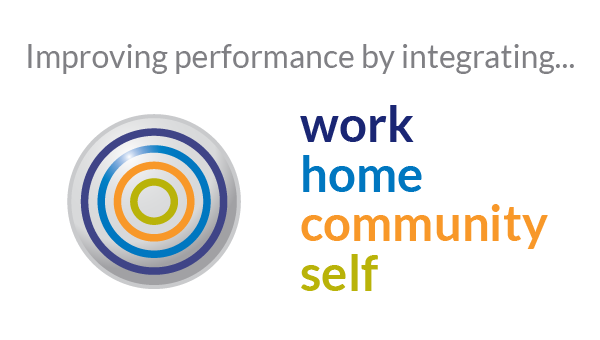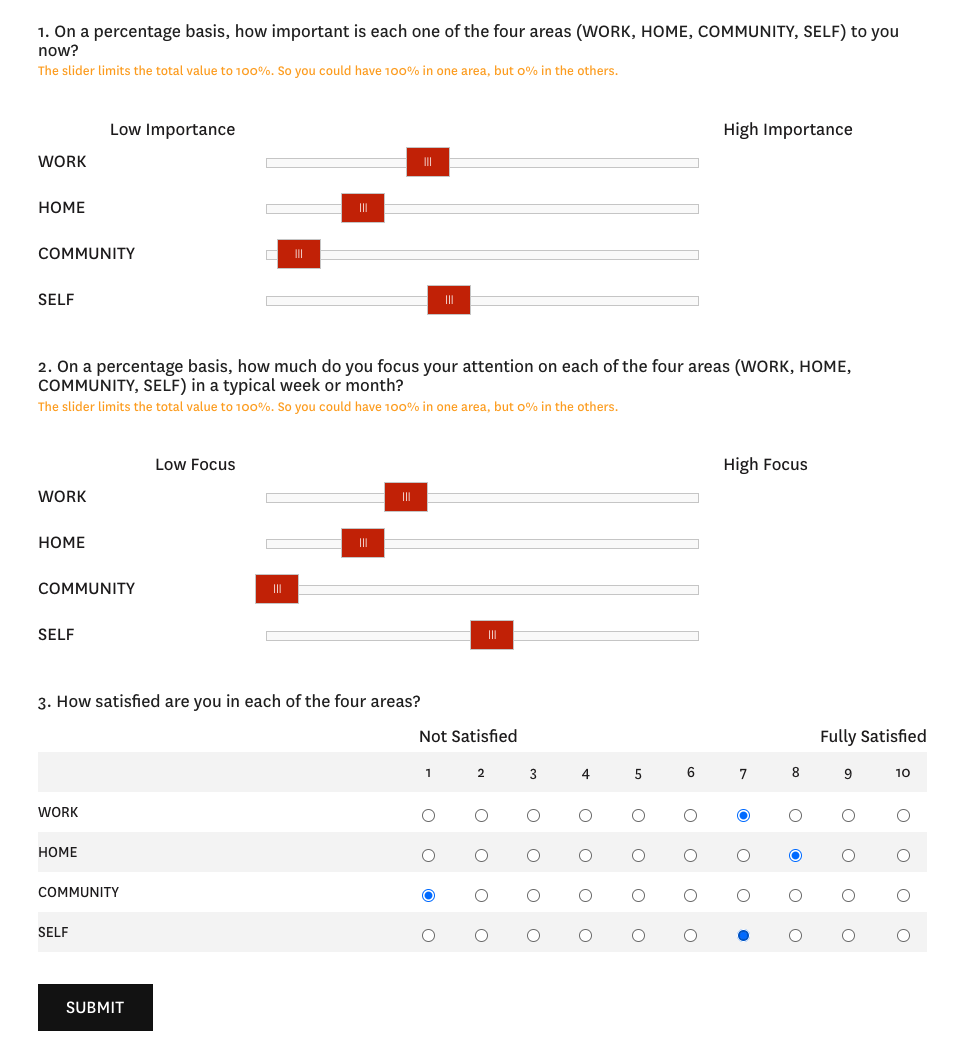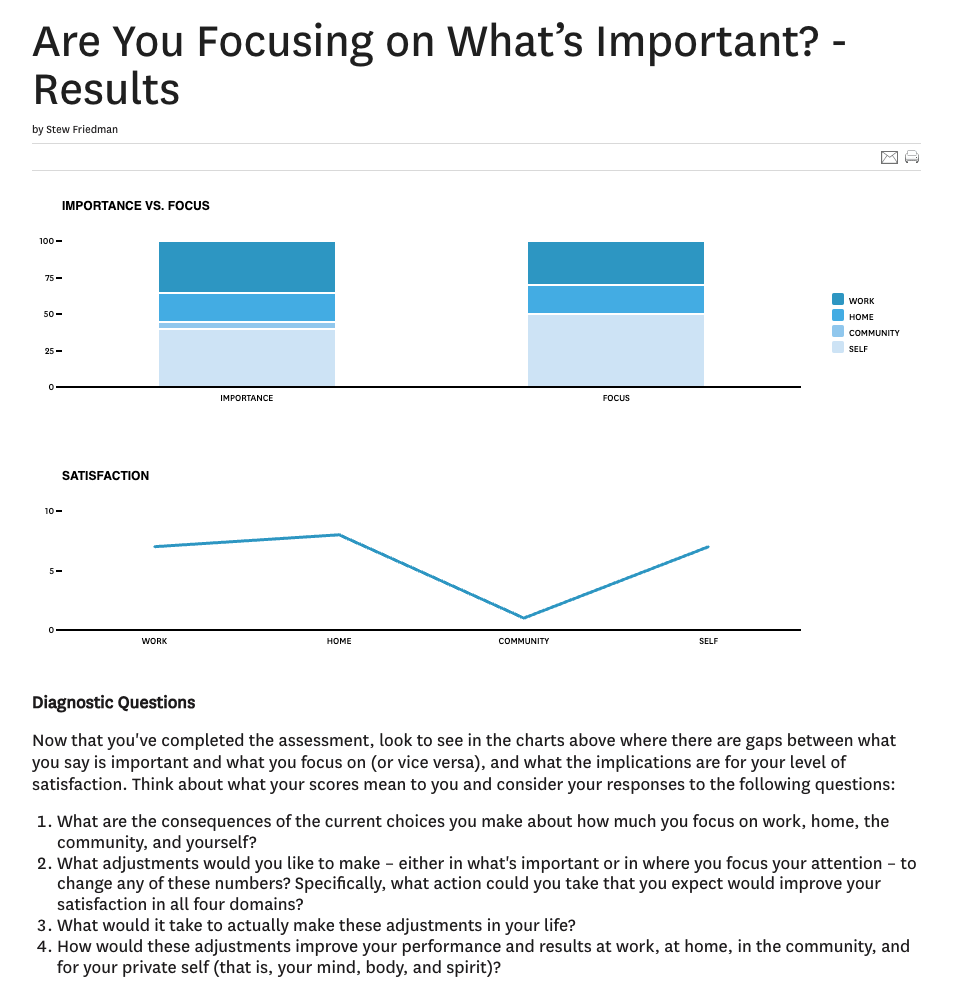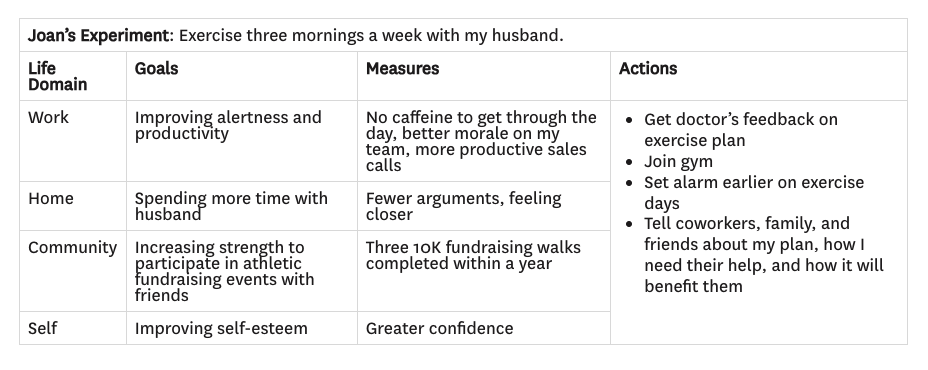Today, I had a one-on-one with one of our top managers in the company. He’s unsure why he doesn’t feel he’s doing great these days. It could be burnout or a loss of focus. He wants to explore how to create a better environment to be calm and find materials to keep upgrading his knowledge to be relevant.
I ran into the concept of Total Leadership on the same day. In another session in the HBR On Managing Yourself series, I got to the Be a Better Leader, Have a Richer Life article and became hooked. From it, I learned about Friedman’s book “Total Leadership”, and the whole leadership training program of the same name at the Wharton School.
I encouraged him to be clearer about what he wants and I would support him to have a work-life balance. I want him to bring his superpowers and empower him to delegate work to others to complement his weaknesses. I wish to meet with him more often from now. This is the first of our renewed one-on-one series. Yes, I want him to be more proud of his results at work, but I know I want him to be even more proud of personal growth and time for loved ones. Just as I tried to slow down to think more slowly and focus on where I can have an impact as a leader in the company, I need to find ways to help my managers benefit by slowing down, too.
Strong work ethics is a necessary condition, but not sufficient. I heard someone say, “Becoming senior happens outside regular work hours,” and I agreed. However, after some time working hard, we deposit enough credibility that I think it’s worth stepping back, withdrawing a little from the bank of “good faith,” and focusing on family and personal matters.
It was natural for me to “work hard, play hard” in my 20s and early 30s. I think I said “work-life integration” for the first time around 12 years ago and repeated it many times. In that previous decade, I was at my prime in energy, working on two companies I cofounded across two different time zones. I had a judgment back then that work-life balance was for the people who enjoyed the status quo and that life wasn’t for me.
Today, I try to maintain a work-life balance, but I do not want to stay in the status quo. I will keep looking for breakthroughs, personally and professionally. I also prioritize family because all precious time with loved ones is limited, and you can never go back to celebrate mom’s 60th birthday or daughter’s 6th birthday one more time.
Interestingly, Total Leadership has a “Work/Life Integration” project. I like that it provides prices to improve performance by integrating work, home, community, and self. It boils down to three principles.
Be real: act with authenticity by clarifying what’s important.
Be whole: act with integrity by respecting the whole person.
Be innovative: act with creativity by continually experimenting.

While it’s counter-intuitive to some, I completely agree with Total Leadership’s ‘assertion that we can excel in all domains (work, home, community, and self) by fostering mutual value among them. I was eager to put this to the test and tried the Four-Way View test myself.

And I get the following results

It then guides me through experiments for improvements
First, we need to be aware of the gaps. It’s common to have gaps, and yes it can be concerning. I consider myself pretty lucky that the gaps are not big.
Life is not a zero-sum game. When you strive to win in one dimention (e.g. work), you don’t have to lose in one or more of the three dimensions (self, home and community). You don’t have to make trade-offs among life’s domains. Nor sholud you. You can make big prorgress toward closing the gaps by starting smalls.
So I now have a template to brainstorm possibilities and turn into experiments for myself. That’s completely out of scope for today, so I just embed a sample experiment from the framework.

That’s it for today. The HBR essay is compelling, and the website has interesting resources. I’ll spend some time with them in the upcoming weekend.